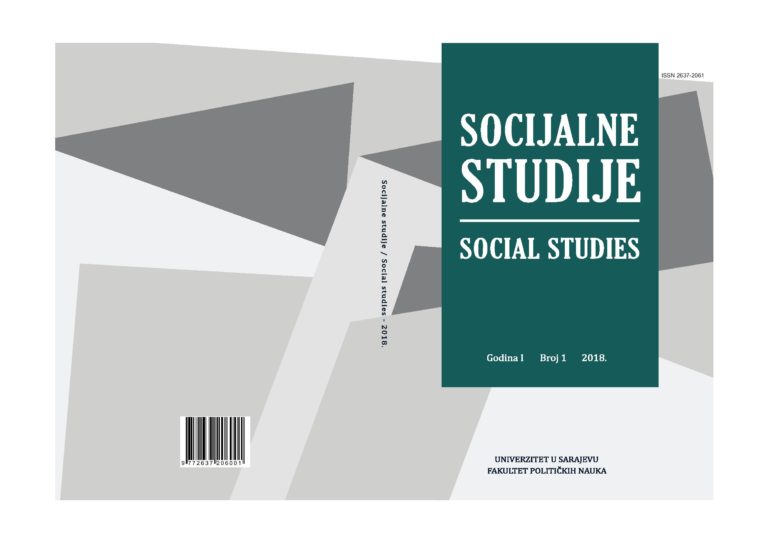OBRAZOVANJE SOCIJALNIH RADNIKA U BOSNI I HERCEGOVINI: 60 GODINA POSLIJE
EDUCATION OF SOCIAL WORKERS IN BOSNIA AND HERZEGOVINA: 60 YEARS AFTER
Author(s): Suada BuljubašićSubject(s): Higher Education , History of Education, Family and social welfare, Welfare services
Published by: Fakultet političkih nauka - Univerzitet u Sarajevu
Keywords: education; social work; integration; Bologna Process; international cooperation;
Summary/Abstract: The education of social workers has a 120-year-old world tradition. It begins at the end of the 19th century, grows at the beginning of the 20th century and becomes intensive after the Second World War. During this period there have been significant changes in the concept of education, in terms of the content of educational programs and the duration of education. In the territory of the former Yugoslavia, the education of social workers began in the fifties of the 20th century. The first school for social workers was founded in Zagreb in 1952, followed by the opening of schools in Ljubljana, Belgrade, Sarajevo and Skopje. In comparison with the developed countries, such a delay is a result of the legacy of the past, but also of the belief that social problems will disappear in socialism. However, an increasing number of social problems that were closely related to the processes of industrialization, urbanization and migration required different approaches to their resolution and a new profile of professionals - social workers. The Higher School for Social Workers was established in Sarajevo in 1958 and it independently functioned for 27 years until its integration with the Faculty of Political Science in 1985 and the establishment of the Department for Social Work. In the period from integration up until 2005, education of social workers had lasted for four years. The transition to the Bologna study system (Bologna Process) and the application of the 3 + 2 + 3 model were established in the school year 2005/06 when the first cycle of studies (undergraduate study), which lasts for three years, was introduced. The second cycle of studies which lasts for two years (postgraduate studies) was introduced in the school year 2008/09 The third cycle of studies (doctoral study), which lasts for three years at the Department of Social Work, was initiated in the school year 2014/15. Some significant changes have been made in curricula so far, aiming to adapt curricula in line with best practice, as well as with the modern achievements in the field of higher education.
Journal: Socijalne studije
- Issue Year: I/2018
- Issue No: 1
- Page Range: 10-26
- Page Count: 17
- Language: Bosnian

